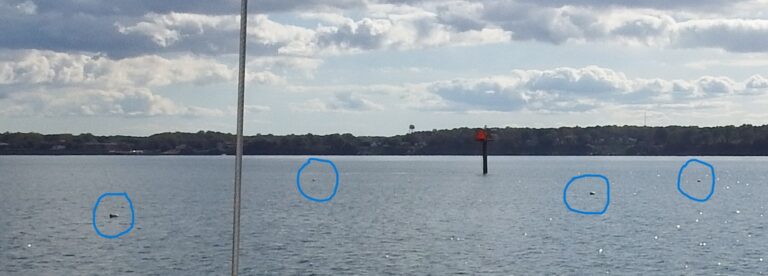Before Yorktown, Lord Earl Cornwallis was quite the warrior. So was Francis Marion, who earned the moniker the “Swamp Fox” for his exploits in South Carolina. Journalist John Oller debunks numerous myths in a new biography, “Swamp Fox: How Francis Marion Saved the American Revolution.” In this extract, Cornwallis’s lieutenant Banastre Tarleton and Marion pursue each other in combat. –Courtesy of the American Revolution Museum at Philapelphia.
“Cornwallis approved the operation, telling Tarleton, ‘I … most sincerely hope you will get at Mr. Marion.'”
“By November 7 Tarleton had moved down to the plantation of the recently widowed Dorothy Richardson. Tarleton learned that Marion was bivouacked sixteen miles south, near Nelson’s Ferry. Marion had likewise detected Tarleton’s presence in the vicinity. The two of them then engaged in a game of cat and mouse.”
“Tarleton spread the rumor that his main body had returned to Camden and sent out small patrols with instructions to show little signs of fear by leaving camps abruptly with food still cooking in order to draw Marion to attack. He lit bonfires at Richardson’s Plantation designed to give the impression that he was burning the home of a revered patriot family.”
 “Marion nearly took the bait. Seeing the light near Richardson’s, he concluded that it was the plantation house on fire and that Tarleton was there.”
“Marion nearly took the bait. Seeing the light near Richardson’s, he concluded that it was the plantation house on fire and that Tarleton was there.”
“Realizing that Tarleton held the advantage, including artillery, Marion decided he needed to depart the area at once. He took his men on a fast ride in darkness through a major swamp, not stopping until they were past Richbourg’s Mill Dam on Jack’s Creek six miles away. With a nearly impenetrable swamp and almost nine miles lying between him and Tarleton, Marion decided he was safe for the night.”
“The next morning, November 8, Tarleton was scratching his head over Marion’s failure to attack, so he sent a few men to find out why. Tarleton reported to Cornwallis, due to Marion’s head start and ‘the difficulties of the country,’ he was unable to catch him. He abandoned the chase at Ox Swamp, outside of present-day Manning, which was wide, mucky, and without roads for passage. It was there Tarleton is said to have uttered the words that gave Marion his immortal nickname. ‘Come my boys! Let us go back, and we will soon find the Gamecock [Thomas Sumter]. But as for this damned old fox, the Devil himself could not catch him.'”
“[On] the night of November 8, Marion was about twelve miles east at Benbow’s Ferry, ten miles north of Kingstree. Tarleton tried to put a good face on his excursion, telling Cornwallis that although he regretted not being able to bring Marion’s rebels to a fight, he was happy to have broken them up. In his memoirs seven years later Tarleton would also claim that he would have caught up to Marion had he not received a message from Cornwallis ordering him immediately to return to Winnsboro. But although Cornwallis did issue that directive, it was not until after Tarleton had already ended his pursuit at Ox Swamp. Cornwallis’s hope that Tarleton would ‘get at Mr. Marion’ had gone unfulfilled.”
“For the moment, Marion felt powerless to confront Tarleton. The patriots were low on ammunition, and the militia, afraid of the Legion cavalry, was reluctant to turn out. This gave Tarleton a temporary feeling of triumph. Cornwallis was pleased with the results. He believed that by forcing Marion to take to the swamps, Tarleton had convinced the patriot citizenry that ‘there was a power superior to Marion’ who could reward and punish them. Tarleton had ‘so far checked the insurrection,’ Cornwallis told Clinton, ‘that the greatest part of them have not dared openly to appear in arms against us since his expedition.'”
“Even as the British claimed to have subdued Marion, he was planning another offensive. Nisbet Balfour, head of the garrison at Charleston, needled Cornwallis that his favorite Tarleton had claimed to have ended the Marion threat. Despite Ban’s claim, Marion reappeared, which was ‘no joke to us,’ Balfour assured his Lordship. ‘I do not think that Tarleton flattered himself that he had done more than stopping his immediate progress and preventing the militia from joining him,’ Cornwallis coolly responded. Shortly thereafter Cornwallis acknowledged that Marion was still a problem. ‘We have lost two great plagues in Sumpter [sic] and [Elijah] Clarke,’ Cornwallis wrote to Balfour, based on a false report that those two partisan leaders had been killed. Then he added, ‘I wish your friend Marion was as quiet.'”
Let’s Go Sail, historically
Check rates and pick a day for a sailboat charter. See reviews on Trip Advisor.



